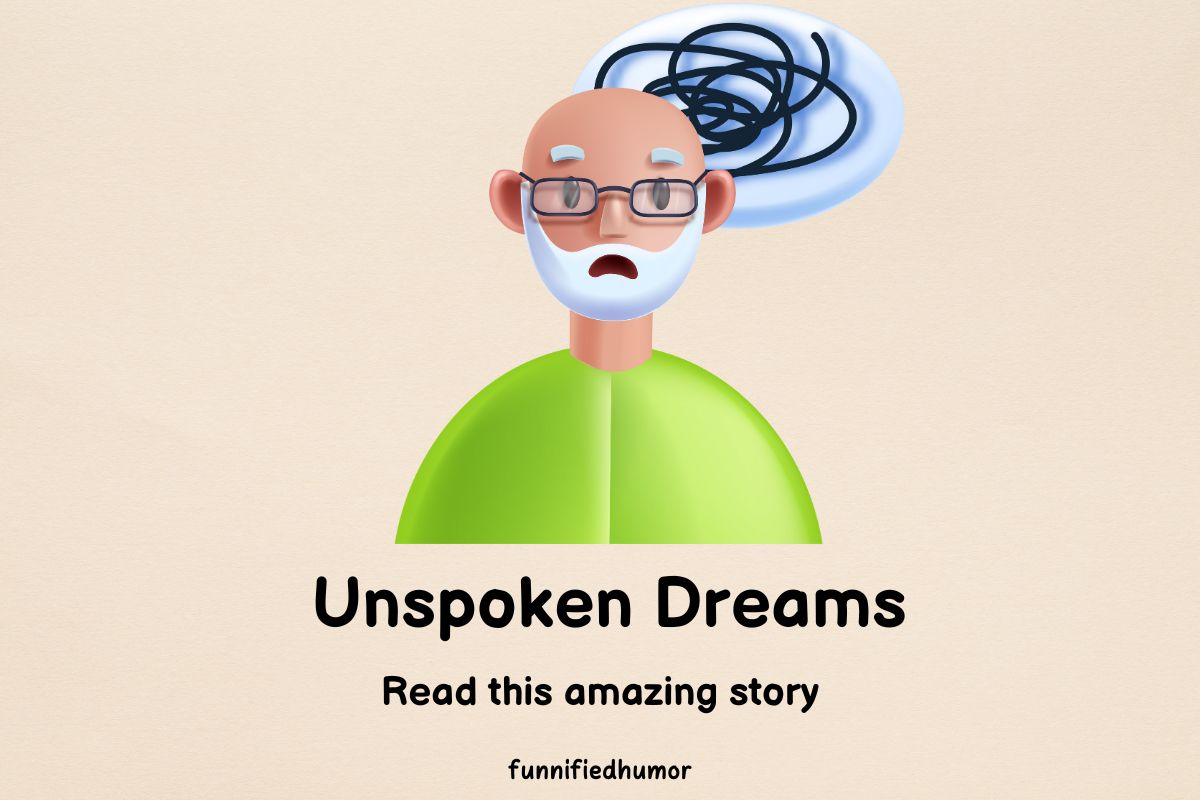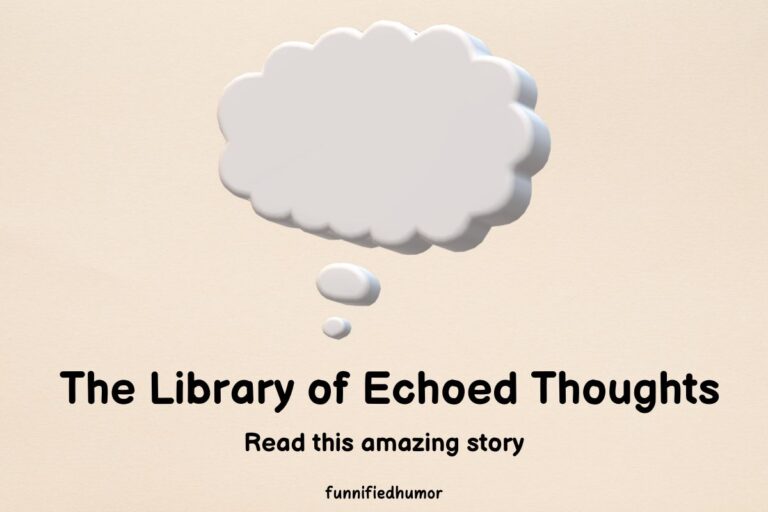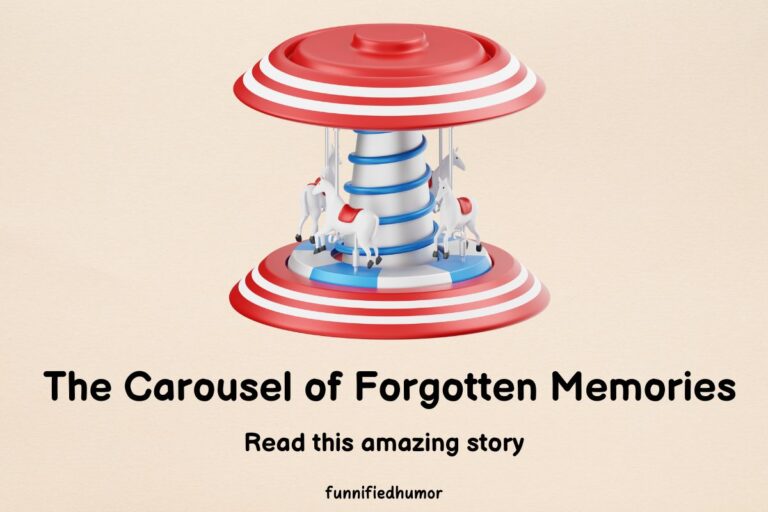Fragments of Yesterday

Amelia and Ethan had lived a life of shared secrets, laughter, and infinite love. For over 50 years, their union had been the epitome of “growing old together”.
They had built a nest in a cozy home overlooking a serene lake. Every evening, they sat on their porch, holding hands, reminiscing about their shared memories.
One evening, as the sun painted the sky with hues of orange and pink, Amelia gently nudged Ethan. “Do you remember our trip to Paris? The rain, the Eiffel Tower, the taste of those delicious croissants?”
Ethan’s forehead creased, his lips quivered as he said, “Paris? Have we been to Paris, Amy?”
Amelia’s heart dropped, “Of course, darling. It was for our 25th anniversary. Don’t you remember?”
Ethan looked lost, trying to force a memory that seemed distant and blurred. “I’m not sure, Amy. Maybe you can remind me?”
The days that followed echoed similar sentiments. Ethan began to forget not just distant memories but recent events. He would misplace his keys, forget appointments, and sometimes, even forget the names of their grandchildren.
The hardest part for Amelia wasn’t just the forgetting, but the moments of stark clarity where Ethan realized something was amiss.
“Am I losing it, Amy?” he asked one day, tears brimming in his eyes.
“It’s just age, love,” Amelia would say, trying to conceal her own despair, holding him close, breathing in the familiar scent of him, the one memory she could never forget.
But as the weeks turned into months, the lapses became more frequent and profound. Conversations were filled with repetition. Plans became challenging as Ethan’s grasp on days and times slipped away.
One particularly harrowing evening, Ethan woke up in a panic. “Who are you?” he screamed, looking at Amelia.
“Darling, it’s me, Amelia. Your wife. Calm down,” she whispered, trying to soothe him.
He backed away, eyes wide with fear, “I don’t know you!”
It took hours, pictures, and videos, to convince him. When he finally calmed down, the weight of realization crashed down upon him. He wept bitterly, “I’m so sorry, Amy. I’m so sorry.”
They sought help. Doctors, therapists, old remedies, new treatments. Dementia, they said. It would get worse, they warned. But Amelia wasn’t ready to give up.
Their home became a fortress of memories. Pictures adorned the walls, letters were strewn around, tokens from their travels were showcased in every corner.
“Remember this?” she would say, holding up a picture or a trinket, “This is from Greece. You proposed to me all over again on that trip.”
Ethan would nod, sometimes a flash of recognition, sometimes a blank look. But Amelia persisted.
Every evening, they would sit on their porch, holding hands. Sometimes, Ethan would remember. On other days, Amelia would retell their stories, hoping to jog his memory, hoping against hope.
One day, as they watched the sunset, Ethan turned to Amelia, “Do you think I’ll ever forget this moment? Us, here, now?”
Amelia squeezed his hand tighter, “I’ll always remember for both of us, love.”
Ethan smiled weakly, his eyes clouded with pain and uncertainty, “Promise?”
“Promise,” Amelia whispered.
The night came, their silhouettes intertwined, as they held onto each other, to their love, and to the memories that were slowly fading away.
Ethan’s days became a patchwork of clarity and confusion. There were mornings he woke up knowing exactly where he was, who he was, who Amelia was. Those were the days Amelia cherished. They laughed, danced, and sang, trying to hold on to those fleeting moments of recognition.
Then there were the days when Ethan would look at her with eyes devoid of recognition. On these days, Amelia would gently take him through their life, their home, their stories.
One afternoon, as Amelia was tending to her rose garden, Ethan approached, holding an old photo album. “This… this was our wedding day, wasn’t it?” he asked hesitantly.
Amelia’s heart leaped. She rushed over, peering at the photo he pointed at – both of them, young and radiant, exchanging vows. “Yes, love! That’s us. The happiest day of our lives.”
Ethan smiled, tears gathering in his eyes. “You looked beautiful,” he whispered, a fragment of a memory resurfacing.
They sat there for hours, flipping through the album, letting the black and white memories color their present. It was a good day.
But not every day was as forgiving.
Amelia began to join support groups, connecting with other families going through the same painful journey. The stories were heart-wrenching, but they gave her strength, knowing she wasn’t alone.
One evening, at a group session, she met Clara, a woman whose husband had also been diagnosed with dementia. They shared stories, tips, and a silent understanding of the pain they both were enduring.
Clara introduced Amelia to a concept called a “memory box” – a collection of significant items, each representing a memory, a story, or an emotion. The idea was to use these tangible reminders to help the person with dementia reconnect with their past.
Amelia was willing to try anything. She went home, dug out an old wooden box, and began filling it. Their wedding rings, the first letter Ethan wrote to her, the little Eiffel tower souvenir from their Paris trip, a dried rose from her garden – every piece had a story.
Every morning became a ritual. Over a cup of tea, Amelia would bring out the box, and they would go through each item, reliving their past. Some days Ethan would surprise her, filling in details she’d missed. Other days, he’d listen like it was a fairy tale.
One particularly cold morning, while wrapped in blankets on the porch, Ethan fumbled with the small Eiffel tower figurine. “We danced… in the rain, didn’t we? In front of this tower?”
Amelia’s heart swelled. “Yes, we did,” she whispered, tears streaming down.
He looked at her, a soft smile playing on his lips. “I might not always remember the details, Amy, but I remember the feeling. I remember loving you.”
It wasn’t perfect, and the painful moments still outnumbered the good, but Amelia held on. She held on to the love, the memories, and the hope that every day would bring a moment of recognition, a fragment of their shared past.
Days turned into weeks, weeks into months. The weight of the disease continued to bear down on them, but the memory box became their beacon, a sliver of hope in the encroaching darkness.
As winter crept in, the days grew shorter, and the nights colder. The trees outside lost their vibrant foliage, and the lake froze over. This transformation of nature mirrored the changes in Ethan. The lucid moments grew rarer, the disoriented episodes more pronounced.
One morning, Amelia found Ethan staring blankly at the snow-covered garden. “Where are we?” he whispered, his voice trembling. “It’s so cold.”
“We’re at our home, love,” Amelia said, guiding him to sit by the fireplace, the warmth slowly enveloping them. “Remember the winters we spent, sitting here, sipping hot cocoa?”
Ethan frowned, struggling to recall, “I feel like I should… but everything’s just… foggy.”
It was a constant challenge. Some days, the memory box became just a collection of trinkets. The stories that once brought joy and recognition now evoked confusion and, sometimes, agitation.
On one particularly hard day, Ethan grew frustrated as Amelia recounted a tale, “Why do you keep telling me these stories? I don’t know these people!”
Amelia’s heart cracked a little more. She held back tears and replied, “I just thought it might help.”
Clara became Amelia’s anchor during these trying times. They’d meet regularly, sharing their experiences, offering solace, and sometimes just crying together.
One day, Clara mentioned a therapist specializing in music therapy for dementia patients. “Music has a way of reaching deep, Amy,” Clara insisted. “You should give it a try.”
Desperate for any connection, Amelia invited the therapist home. The living room was soon filled with melodies from another time – the classics they’d danced to, the songs they’d hummed on lazy afternoons.
At first, Ethan just sat there, looking puzzled. But as the notes of their wedding song floated in the air, something changed. Ethan’s foot started tapping, his lips moved, and soon, he was singing along, his voice shaky but filled with emotion.
Amelia watched, tears in her eyes, as the man she loved swayed to the rhythm, lost in the magic of music. For that brief moment, dementia faded into the background.
Encouraged, Amelia began to incorporate music into their daily routine. Old records, radio tunes, even their grandchildren’s latest favorites – their home was always alive with melodies.
Ethan began to respond. The songs evoked memories the trinkets couldn’t. He’d hum their favorite tunes, recall the dances, and sometimes even tell Amelia stories she’d forgotten.
One evening, wrapped in the warmth of a familiar song, Ethan pulled Amelia close. They danced like they used to, slow and tender, lost in each other’s eyes. “I love you, Amy,” Ethan whispered, clarity shining in his eyes.
“I love you too,” Amelia replied, holding onto the moment, knowing it was fleeting.
Winter turned to spring, and with it came fresh blooms and hopes. Music became their refuge. It didn’t cure Ethan or bring back all the memories, but it bridged the growing chasm between them.
Amelia would often find Ethan humming tunes, sometimes lost in thought, sometimes with a glint of recognition. It was a battle, a constant tug-of-war between the present and the past, but they fought it together, hand in hand, note by note.
Spring blossomed into summer. The lake sparkled under the sun’s golden embrace, and the roses in Amelia’s garden were in full bloom. Life around them buzzed with energy, but within their home, time seemed to move differently.
Ethan’s good days grew rarer. The burden of dementia weighed him down, often leaving him bedridden. Conversations became more one-sided, with Amelia narrating tales of their past, playing their favorite songs, and holding his hand, reassuring him of her presence.
One afternoon, Amelia found a letter addressed to her in Ethan’s shaky handwriting, tucked inside their memory box. She opened it with trembling hands:
Dear Amy,
If you’re reading this, it means I’ve forgotten more than I’ve remembered. I can’t bear the thought of looking into your eyes and not recognizing the love that has been my anchor.
I don’t want to be a burden, a shadow of the man you fell in love with. But I want you to remember the dances, the laughter, the adventures, and the love. Our love. A love that defied time, age, and now, this cruel disease.
Promise me you’ll keep dancing, even when I can’t. Promise me you’ll keep humming our songs and that you’ll remember the love, even when I forget.
Forever yours, Ethan
Tears blurred Amelia’s vision as she clutched the letter to her heart. She walked to their bedroom, where Ethan lay, his eyes closed, breathing softly. She leaned down, kissing his forehead, and whispered, “I promise.”
That evening, the setting sun cast a golden hue over their porch. Amelia, with the letter in hand, played their wedding song. Holding Ethan’s frail hand, she danced with him one last time. He might not have recognized the tune or the touch, but a tear rolled down his cheek, an echo of a love that once was.
Weeks passed, and Ethan’s health declined rapidly. Family members visited, reminiscing about the good times and providing solace to Amelia, who remained a pillar of strength, even as her heart was breaking.
One cool summer night, with stars twinkling overhead and their favorite lullaby playing softly in the background, Ethan took his final breath, his hand intertwined with Amelia’s.
The days that followed were a blur for Amelia – condolences, funeral arrangements, and a house echoing with silence. But amidst the pain, she remembered Ethan’s letter and their promise.
The memory box, the letter, and their songs became Amelia’s treasures. She’d often sit on the porch, surrounded by photos, humming their songs, dancing with memories.
At a gathering some weeks later, Amelia’s granddaughter approached with a question, “Grandma, how do you cope with the loss?”
Amelia smiled, taking a deep breath, “Love doesn’t fade, dear. It transforms. Ethan might not be here, but our memories, our songs, and our dances keep him alive. And every time I dance, every time I hum our tune, I feel him right here,” she placed a hand over her heart, “forever and always.”
And so, the seasons changed, but Amelia’s promise remained. Through the dances, the songs, and the memories, Ethan lived on, a testament to a love that transcended time, age, and even memory.





